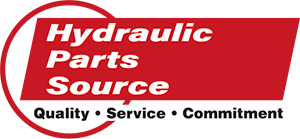8 End-User Tips for Choosing a Hydraulic Fluid Power Products Distributor
Regardless of the size of your business operations, a successful and strategic buying strategy is critical. The strength of your supply chain is instrumental in providing cost effective solutions in maintaining efficient operations. If you operate and maintain hydraulic processes, the hydraulic fluid power supplier is an integral part of your team. Choosing your distribution partner involves many factors. Here are 8 tips that can help you develop a good distributor relationship strategy for your company.
Tip #1: Find the Right Supplier
You may work with one or several suppliers. Finding the right one to partner with, can not only be tricky, but can offer a competitive advantage. It is imperative to find a distributor who represents the manufacturers and products your business needs at competitive pricing. In addition, geographical location, technical experience and reliable response and access are important.Tip #2: Consider Logistics When Outlining a Buying Strategy
There are several, logistical elements that should be considered when doing business with a distributor. You should evaluate location of the stocking warehouse, portfolio of products offered and level of product expertise. Make a list of critical logistics that affect delivery capabilities and quality of support, factoring these into your overall distribution strategy.Tip #3 Rapid Delivery and Service are Key.
If the product is needed immediately because of an equipment breakdown or an operating supply shortage, speedy replacement is essential. The cost of downtime for an oil drilling rig is more than $100 a minute and the downtime on an automotive engine assembly line is more than $100,000 per hour. Minutes can be a matter of life and death when a hospital operating room needs a small piece of surgical tubing or parts for a life-support machine. In all these situations, the longer the downtime, the more costly the situation and the greater the need for prompt delivery and possibly for technical service by a local distributor.Tip #4: Understand Your Industry's Distribution Channels
There are many ways a product can go from manufacturer to retailer. Not all distributors serve the same market. Understanding your industry's distribution channels and supply chain can help you find the right wholesale supplier for your business. Each industry has its own unique distribution channels, which can then vary by product, region, or country. When you first start, you might be buying from the smaller distributors at higher prices. As your volume increases, you'll be able to get better pricing or move up the supply ladder to a bigger distributor.Tip #5: Have a Productive First Contact with a Distributor
Begin contacting distributors, either using the list you got from the manufacturer or a wholesale directory. You want to find out their minimum order requirements, wholesale pricing, geographical territory and on-hand inventory levels, as well as the region they supply. You can make this initial contact by phone or email and follow up by phone if you need more information or would like to move forward. Don't be afraid to let the people you talk to know you are doing research and looking at other competitors as well. This can help you get better prices, even if you are starting out small.Tip #6: Get Specific in Online Searches
If you do an online search, don't just search for general distributors or distributors. Be sure to include keywords from your products or niche. Try product names, model numbers and brand names. If any of the distributors you find don't have an email address or phone number readily available, you could do a WHOIS search to find the website owner's contact information. WHOIS is an internet service used to look up information about a domain name. The more potential distributors you find, the better you'll be able to comparison shop and get a feel for what normal industry prices are, as well as get competitive quotes.Tip #7: Subscribe to Your Industry's Trade Publications
Trade magazines are a wealth of information about businesses and relationships in your industry. Many advertisers in the magazine will be product manufacturers or distributors trying to reach you. A single issue of a trade magazine can provide the names of dozens of distributors.In addition to magazines, subscribe to online newsletters and blogs. These are often the best way to keep up with daily or weekly industry news and updates.
Tip #8: Attend a Trade Show
Trade shows are one of the most powerful ways to build and grow your business. These events are designed for retailers to connect with distributors and manufacturers.Trade shows allow you to meet and speak with dozens of distributors or manufacturers in a single day. These face-to-face conversations often avoid misinformation or communication difficulties that can occur when contacting people online.
The Trade Show News Network is the largest directory of trade shows online. You can search for a trade show by industry, date, city, state or country and/or event name.

